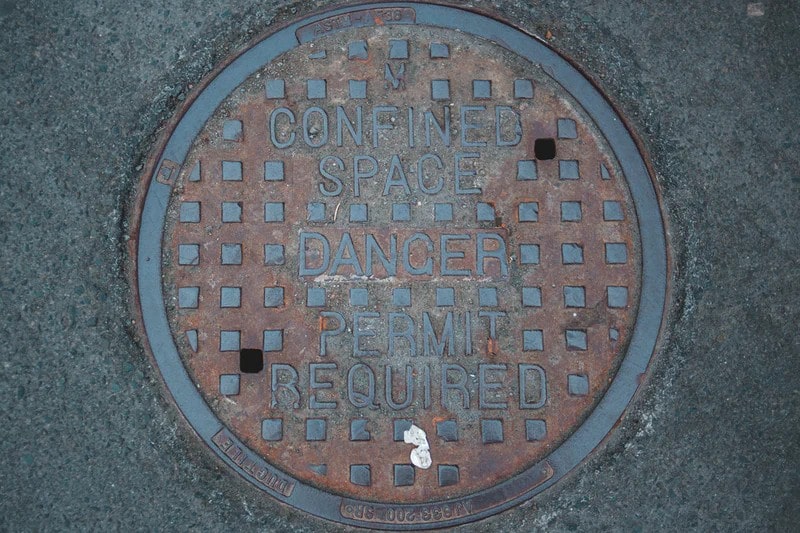No products in the cart.
Maintenance Tips for Sewer Systems

People tend to overlook the value of sewage and septic systems as it’s something that they don’t regularly see even though it’s something that they regularly use. The truth is that these systems are the life and blood of sanitation in neighborhoods and homes.
Whether you are on your own personal septic system or are connected through the public sewage system, it’s a must for you to do your part in caring for it.
A sewer line can become blocked with debris, dirt, and grease over time. This can cause sewage to back up and overflow into your home or business, leading to a host of problems. If you’re experiencing these problems, it’s important to get your sewer cleaned as soon as possible. Here are some tips for cleaning your sewer line:1. Get a professional sewer cleaning company to do the job. A sewer cleaning service is much more effective than trying to clean it yourself.2. Use a drain cleaner. A drain cleaner will break down the debris and grease blocking the sewer line.3. Clear out any furniture or objects that may be blocking the pipe.4. Call a plumber to help clear the blockage and fix any damage done by the overflow.
Sewage and septic systems that aren’t properly cared for are detrimental to health as water waste isn’t properly disposed of. It can also cause major damage during storms as clogs result in flash floods.
The good news is that proper maintenance and care for these systems isn’t hard at all. Here is something you need to do.
Buy A Drain Guard
One of the things that you really need to avoid doing to your drain is letting large chunks of food or non-biodegradable objects go down on it. The best way to do that is by investing in a drain guard.
In essence, a drain guard is a small piece of metal that blocks large objects from entering your pipes.
These large objects don’t only damage your pipes, they are also damaging to the sewer system. It may not clog up the pipes in your house.
However, the build-up of these materials in the sewer system could result in bigger problems in the future. Drain guards shouldn’t cost you an arm and a leg so invest in them immediately.
You can buy a drain guard from any hardware store. You can also buy it online.
Consider Shifting To A Septic System
You’re not required to stay on the public sewage system. If you want to do more for the environment, then you should consider shifting to a septic system for your wastewater disposal. Septic systems have been around for years and they have been proven and tested to dispose of wastewater as efficiently and as properly as possible.
Septic systems primarily function through the septic tank which is an underground chamber through which your wastewater passes. The wastewater comes from various parts of the house such as the toilet, sink, and bathtub.
In it, colonies of bacteria dissolve all of the solid wastes to turn it into sludge. You can click here to see more about how the process works. What you should know though is that the process ends with the water going back to the earth.
Caring for a septic system is similar to what you would do when caring for the public sewage system. Avoid putting non-biodegradable objects through the drain, don’t put chemicals down the dragon, and most importantly, you should have it maintained regularly. If you do, you shouldn’t have any issues with your septic system. You can find more info on septic system maintenance from reputable sources.
Even the government urges people to shift to the septic system as there’s just a lot of merits behind it.
Ideally, you’ll have to invest a lot of money in installing a septic system for your home but it will be worth it considering you no longer have to pay for the sewage bill which comes monthly.
Throw Non-Biodegradable Objects Properly
It should be a given by now but you should not carelessly throw away your non-biodegradable waste. Keep in mind that septic systems and sewer systems cannot dissolve this harmful trash as the bacteria colonies inside can only break down biodegradable wastes. The Portland Environmental Services lists down some of the things that shouldn’t reach the sewer system.
The list includes disposable diapers, tampons, and tampon applicators, sanitary napkins, cotton balls and swabs, mini or maxi pads, condoms, cleaning wipes, facial tissue, contact lenses, bandages and bandage wrappings, automotive fluids, paint, solvents, sealants, and thinners, poisons, and hazardous wastes.
You should also avoid flushing pet poop down the drain as these pose serious health risks.
It’s also inadvisable to dispose of unused medication down the drain. For these wastes, simply throw them in the trash can. Keep in mind that water in the sewage system is treated to be usable again. These materials will make the treatment process more complicated.
Aside from causing serious clogging issues and later on, flood, these non-biodegradable objects can also turn the sewer into a cesspool of dangerous bacteria.
Limit Fats, Oil, And Grease
These materials are thicker than water so when it reaches the sewer system, they float atop the water which makes the filtration process much harder.
Other than that, you have to keep in mind that these liquids can also clog up your pipes. You’ll know that you have grease issues in your pipes if the drains function much slower.
The best way to dispose of oil, fats, and grease is to simply put them in a container before throwing them out of the trash can. Directly pouring the oil you used for cooking down the drain is just a bad idea.
Flush Down Hot Water In Your Drain Regularly
One of the best ways to clear your pipes without the use of chemicals is simply by using hot water. All you have to do is boil a few liters of water and pour it down the drain.
What happens is that this clears up any debris within your pipes, making it easier for water to come down. If there’s already a thick build-up of oil and grease in your pipes, then they’ll be dissolved along with the hot water.
You should do this at least once a week or even after you’ve washed dishes that are a little bit on the oily side. Using chemicals to clean your drain isn’t good for the sewer and septic system so limit using these as much as possible. There are some chemicals deemed okay for use in your drains but still, you should limit yourself to using these at least once a month only.
The sewer system helps us maintain a natural and healthy water recycling system. It is a must for each of us to do our part in maintaining the sewer system’s wellness. These are just some of the simple things we can do to ensure that the sewer system is free of trash that could, later on, return to us in the form of floods and unsanitary gutters.

















Leave a Reply